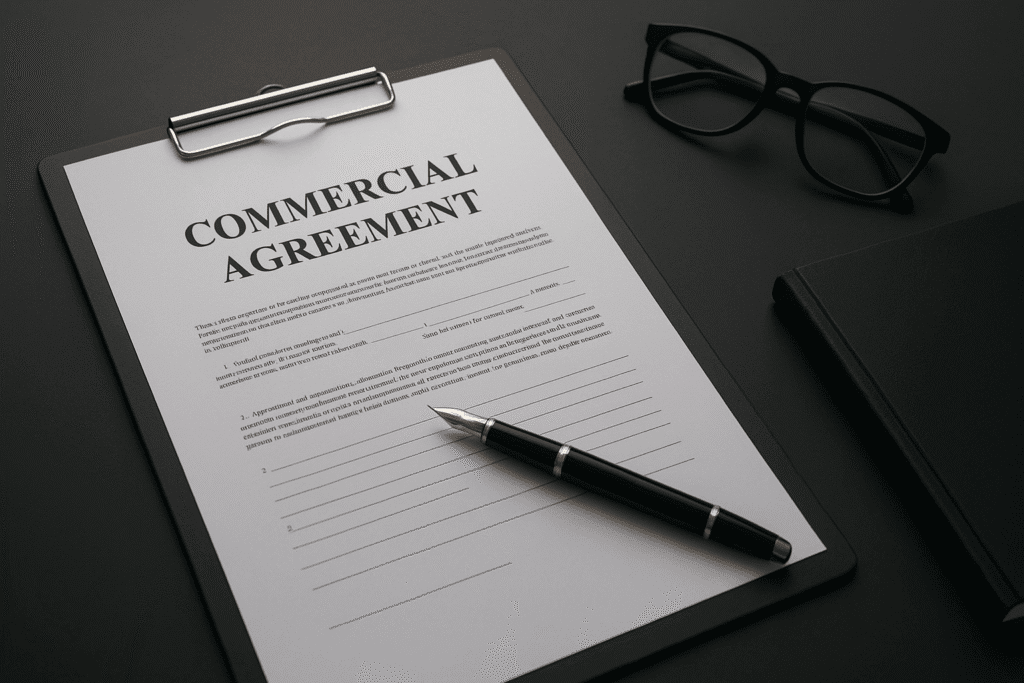
In the UAE, commercial agreements form the foundation of every successful business transaction. But when it comes to operating in Mainland Dubai versus a Free Zone, there’s often confusion about whether an Arabic version of your agreement is required—and more importantly, whether it needs to be legalized.
At Al-Hamd Legal Translation L.L.C, we simplify this process by offering certified Arabic translations of commercial agreements that are recognized by UAE courts, ministries, and free zone authorities.
Why Arabic Legalization Matters in UAE Commercial Agreements
The UAE is a bilingual jurisdiction where Arabic is the official legal language. While English is widely used in business, certain entities require official Arabic versions of agreements for recognition.
Mainland Dubai (Department of Economic Development – DED): Arabic is mandatory in all legal contracts. English copies may be attached, but only the Arabic version holds legal weight.
Free Zones (e.g., DIFC, JAFZA, DMCC): Some operate under common law frameworks and may accept English agreements. However, for litigation or enforcement, authorities often request legalized Arabic versions.
Key Takeaway: If you want your agreement enforceable in a UAE court, always prepare a legalized Arabic translation.
Mainland vs Free Zone Requirements: A Clear Comparison
Here’s a quick breakdown of when legalized Arabic versions are required:
| Jurisdiction | Is Arabic Required? | Is Legalization Needed? | Authority Involved |
|---|---|---|---|
| Mainland (DED) | ✅ Mandatory | ✅ Yes, for enforceability | UAE Courts, DED |
| DIFC Free Zone | ❌ Not always required | ✅ If submitted to UAE Courts | DIFC Courts, UAE Courts |
| JAFZA Free Zone | ❌ Optional | ✅ For litigation | JAFZA Authority, UAE Courts |
| DMCC Free Zone | ❌ Optional | ✅ For disputes | DMCC Authority, UAE Courts |
Real-Life Example: Investor Agreement in Mainland vs Free Zone
Case 1 – Mainland Dubai: An investor signed a partnership agreement in English only. When a dispute arose, the Dubai Court rejected the English document and required a legalized Arabic version. The absence of one delayed the resolution and increased costs.
Case 2 – Free Zone (DIFC): A shareholder agreement was accepted in English by the DIFC authority. However, when enforcement was sought in Dubai Mainland courts, the absence of a certified Arabic translation resulted in delays.
Lesson: Even in Free Zones, prepare for the possibility of Mainland court involvement by legalizing Arabic versions upfront.
When Should You Request Legalized Arabic Translations?
You should always request a legalized Arabic translation for commercial agreements when:
Signing partnership or shareholder agreements in Mainland Dubai.
Drafting employment contracts for UAE courts.
Registering a lease, property, or franchise agreement.
Preparing for cross-border enforcement of agreements.
Filing litigation or arbitration cases in UAE courts.
Why Choose Al-Hamd Legal Translation for Commercial Agreement Legalization?
At Al-Hamd Legal Translation L.L.C, we provide:
MOJ-certified translations accepted by UAE authorities.
Expertise in both civil law (Mainland) and common law (Free Zone) frameworks.
Fast turnaround for urgent commercial transactions.
Legalized translations for enforceability across courts and ministries.
Our team ensures that your commercial agreements are not just translated but are legally binding and recognized.
Final Takeaway
For businesses in Dubai and across the UAE, the question isn’t whether you need a legalized Arabic version of your commercial agreement—it’s when and where. In Mainland Dubai, it’s always mandatory. In Free Zones, it may not be required for registration but is crucial for litigation or enforcement.
Protect your business interests by securing legalized Arabic translations with a trusted partner.
Looking for a reliable partner?
Trust Al-Hamd Legal Translation L.L.C for seamless, certified, and court-recognized translations.
Contact us today for the Best Legal Translation in Dubai.
